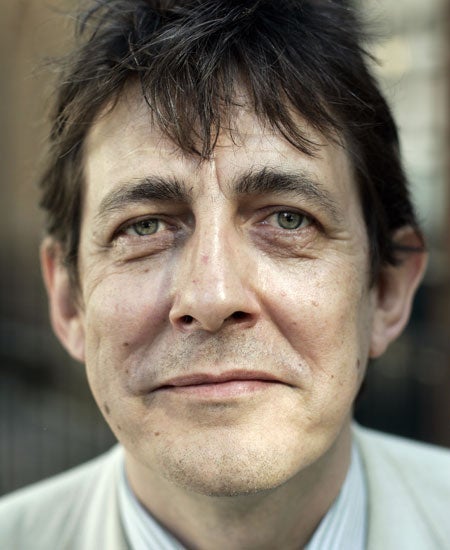New drugs raise life expectancy of HIV sufferers by 13 years

Your support helps us to tell the story
From reproductive rights to climate change to Big Tech, The Independent is on the ground when the story is developing. Whether it's investigating the financials of Elon Musk's pro-Trump PAC or producing our latest documentary, 'The A Word', which shines a light on the American women fighting for reproductive rights, we know how important it is to parse out the facts from the messaging.
At such a critical moment in US history, we need reporters on the ground. Your donation allows us to keep sending journalists to speak to both sides of the story.
The Independent is trusted by Americans across the entire political spectrum. And unlike many other quality news outlets, we choose not to lock Americans out of our reporting and analysis with paywalls. We believe quality journalism should be available to everyone, paid for by those who can afford it.
Your support makes all the difference.Modern drug cocktails used to treat HIV have led to dramatic improvements in life expectancy for patients in the West, doctors have found.
A patient diagnosed at 20 today can expect to live to nearly 70, research shows. At 35 – the average age of diagnosis in the UK – life expectancy is over 72.
Overall, life expectancy improved by an average of 13 years between 1996 and 2005 and has continued to rise as treatments have been refined. Professor Jonathan Sterne, a member of the Antiretroviral Therapy Cohort Collaboration at the University of Bristol, said: "There has been a revolution in drug treatment for HIV since 1996. It has been transformed from a rapidly fatal disease to one with death rates more like diabetes. Suddenly we were able to stop the virus replicating and the immune system recovered.
"What we didn't know was what the long-term effects would be," he continued. "People feared that after the great early benefits, the virus would begin replicating again and the decline [in the immune system] would resume. There were also worries that resistance would develop, as would side effects such as heart disease. Instead the drugs have got more effective, with few side effects. There are also new classes so if you can't take one you can switch to another. They are also now easier to take, once a day. "
Despite the success, the life expectancy of HIV sufferers remains well short of that of the uninfected population and those diagnosed late in the course of the illness die soonest, the joint US and British study, published in The Lancet, concludes.
In the UK an estimated 80,000 people are living with HIV, of whom a third are not diagnosed and a further third are diagnosed late, according to the National Aids Trust.
Professor Sterne called for a national screening programme to identify those infected. "One of the main reasons people do worse is because they are diagnosed too late. What should happen is that the adult population up to age 55 should be screened regularly. In the past there was a huge stigma attached to HIV testing – it would have been an outrageous invasion of privacy. Now if you think of it like diabetes, a national screening programme would be unexceptionable. It would be a simple, cheap blood or saliva test – not like screening for breast cancer, which involves expensive mammography and invasive biopsies."
A 2005 study in the New England Journal of Medicine had shown that a screening programme would be cost- effective in the US, he said. The HIV test kit costs from 50p to £1.20, but when labour costs are included this rises to £7 to £15.
A spokesman for the Terence Higgins Trust said: "Late access to treatment can reduce life expectancy dramatically. Around a quarter of all HIV-related deaths last year could have been avoided if people had been diagnosed and started on medication earlier. We have to bring this figure down and encourage people at high risk to go and get a test."
The research was based on results from 14 studies of people infected with HIV in Europe and North America who were diagnosed in 1996 to 1999, 2000 to 2002 and 2003 to 2005. A total of 33,000 patients were included, of whom 2,065 died.
Julian Hows, HIV sufferer, 53: 'Without this treatment regime I would be dead'
It is 18 years since Julian Hows was diagnosed with HIV, and nine years since he started drug treatment. Now aged 53, he is looking forward to many more years of life.
"I thought I was going to die when I was diagnosed. I didn't – but by 1999 I was getting quite ill with pneumonia. I started on the drugs and without them I would be dead." He has had only one change in his drug regime in this time, because he developed a liver reaction. "Anybody on anti-HIV medication suffers side effects for which you have to take more drugs. I have stomach upsets, numbness and skin conditions. The new treatments are giving people longer lives and making HIV a manageable condition."
Join our commenting forum
Join thought-provoking conversations, follow other Independent readers and see their replies
0Comments